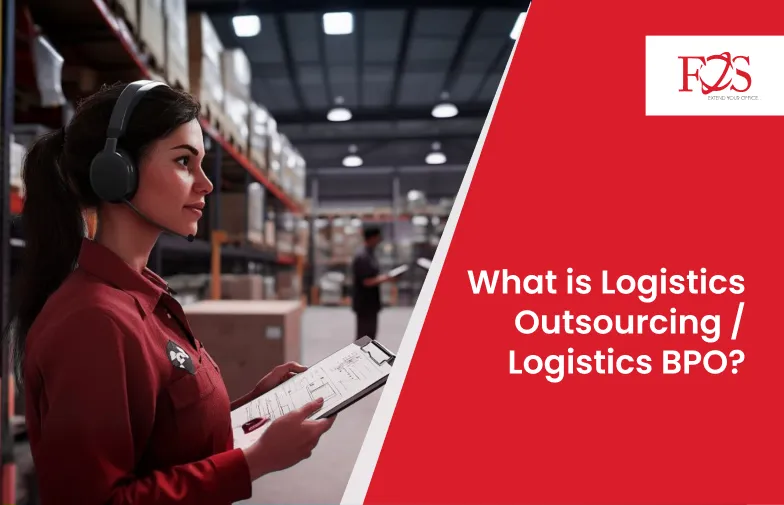Logistics outsourcing, also known as logistics BPO (Business Process Outsourcing), is the method of hiring independent service provider companies to deal with various aspects of a business’s logistical needs. This includes activities associated with the supply chain, consisting of distribution, warehousing, and transportation.
Businesses that outsource logistics operations can focus on their primary objectives while at the same time experiencing the best resources from specialized outside service providers concerning their workflow activities and obligations.
It is said that the worldwide logistics outsourcing market was valued at $365.9 billion in 2023, with a 6.6% annual growth rate expected until 2028. This shows the demanding and growing need for supply chains that are simplified and effective in the future.
Logistics outsourcing has grown in popularity among businesses looking to simplify operations and decrease expenses. Instead of managing the entire supply chain internally, businesses can outsource individual operations to third-party logistics BPO services, allowing them to benefit from the advantages of scope and specialized knowledge. Let us now deeply look into the various aspects of outsourcing in business’s logistical needs.
Benefits of Logistics Outsourcing
Reducing Expenses
Outsourcing logistics can result in significant cost reductions for businesses. Companies can save money by working with established logistics providers rather than maintaining their own transportation fleet, warehouse facilities, and distribution networks.
Focus on Core Competencies
Businesses can concentrate their resources and attention on essential activities that generate income and innovation by outsourcing unimportant logistics functions. This strategic move enables businesses to better organize their time and resources, resulting in increased competitiveness and profitability.
Flexibility and Scalability
Outsourcing logistics allows businesses to scale their operations up or down dependent on market demands and business requirements. This scalability enables businesses to respond swiftly to changing market conditions while avoiding the fixed expenses associated with maintaining the company’s logistical capabilities.
Types of Logistics Outsourcing
First-Party Logistics (1PL)
1PL stands for First-Party Logistics or independently operated businesses. It is a supply chain model in which a business moves goods or services from one location to another.
Second-Party Logistics (2PL)
It is a supply chain approach in which a company owns or rents assets like vehicles or planes to transfer goods from one point to another. For example, the same local farm may employ a second-party logistics provider to convey their eggs from the farm to the store.
Third-party logistics (3PL)
It is a supply chain model in which an organization maintains executive control while outsourcing transportation and logistical activities to a provider, who can outsource some or all of the execution. To increase the value of the supply chain, additional services like crating, boxing, and packaging may also be provided.
In the farm-to-grocery-store scenario, a 3PL may be in charge of both putting the eggs in cartons and delivering them from the farm to the shop. Essentially, it means that a third party, in addition to the consignor/consignee and carrier, participates in a company’s logistical processes.
Fourth-Party Logistics (4PL)
It is a supply chain concept in which an enterprise outsources logistics management and execution throughout the supply chain. The 4PL provider often provides strategic insight and management for the enterprise’s complete supply chain. For example, a manufacturer may hire a 4PL to totally outsource its logistical operations. In this case, the 4PL may manage communication with the farmer to enhance egg production as the grocery store’s inventory drops.
Fifth-Party Logistics (5PL)
It’s a supply chain structure where a supplier creates an ideal supply chain network and offers creative logistical solutions. 5PL providers use technologies like blockchain, robots, and automation devices to optimize processes and create value across the supply chain.
Factors to Consider Before Outsourcing Logistics
Details about the industry
Before outsourcing logistics work, companies need to take into account the particular needs and difficulties of their sector. The selection of outsourcing partners and service levels can be influenced by various factors, including market dynamics, product attributes, and regulatory compliance. So know well before what you decide to do.
Service level agreements (SLAs)
To make sure that the business’s needs and expectations are met by the outsourced logistics services, it is important to establish explicit service level agreements (SLAs). To reduce risk and assure accountability, SLAs should include performance indicators, quality standards, and dispute resolution methods.
Integration of Technology
Businesses and their outsourcing partners must collaborate seamlessly for effective technology integration to take place. Throughout the supply chain, productivity and decision-making are improved by investing in functional systems and platforms that allow for real-time visibility, data sharing, and process automation. In fact, this would undoubtedly lead the business to a new level of success.
Challenges of Logistics Outsourcing
Loss of Control
Logistics services that are outsourced may lead to a loss of control over important supply chain components including order fulfillment and inventory management. To retain visibility and control, businesses need to set up clear communication routes and performance monitoring systems.
Communication problems
Inadequate communication between companies and their outsourcing partners can cause supply chain delays, mistakes, and inefficiencies. To resolve conflicts and maintain teamwork, frequent communication protocols, feedback systems, and escalation procedures must be established.
Quality Issues
Outsourcing logistics operations can cause issues with service quality, dependability, and consistency. To overcome these concerns, businesses should do extensive due research when choosing outsourcing partners, with an emphasis on reputation, experience, and track record.

Conclusion
To sum up, logistics outsourcing helps businesses to be successful and provides various advantages for companies looking to improve their supply chain operations. Utilizing the knowledge and assets of outside providers allows businesses to cut expenses while at the same time increasing productivity and flexibility However, in order to reduce risks and increase revenue, efficient outsourcing necessitates careful planning, communication, and teamwork.
Finding a strategic partner who can improve your supply chain and spur business expansion is the goal of logistics outsourcing, not just assigning away work. Understanding its benefits, investigating its basic activities, and selecting the proper partner can lead to increased productivity, cost savings, and, ultimately, a satisfied customer base.
Find the right services at the FOS Desk and discover how we can assist you in improving your transportation services to the fullest, ensuring customer satisfaction.
